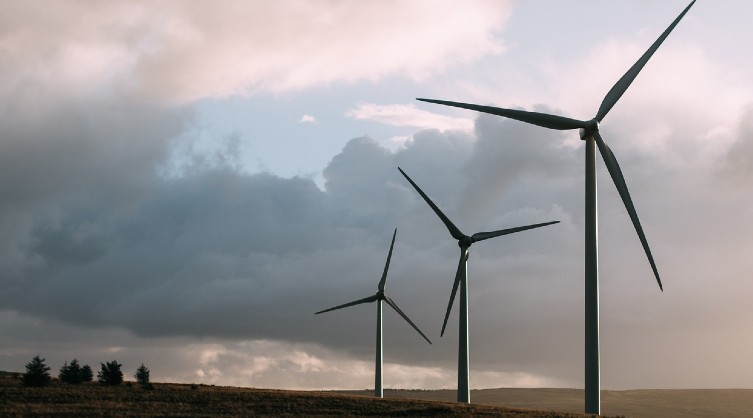Wind power surging towards achieving 100GW
By EPR Magazine Editorial September 4, 2023 12:38 pm IST
By EPR Magazine Editorial September 4, 2023 12:38 pm IST

Mr. Ajay Devaraj, Secretary-General of the Indian Wind Power Association (IWPA) highlights how India’s vibrant wind energy sector is driving sustainable growth and transforming the power landscape through the rise of renewable sources.
India presently boasts a formidable power generation capacity of 422 gigawatts, spanning an array of conventional and non-conventional sources. Of particular significance is the 29 percent share held by renewable energy sources, a substantial 130 gigawatts. Factoring in large hydroelectric capacities, this renewable total escalates to an impressive 177 gigawatts, marking 42 percent of the nation’s capacity. This notable contribution is a testament to India’s remarkable strides in sustainable energy.
Wind power legacy and advancements
The roots of the Indian Wind Power Association trace back 27 years, but the wind energy sector was active for 11 years before its establishment in 1996, resulting in a cumulative 38-year legacy. This extensive trajectory presents multiple advantages. Notably, domestic windmill manufacturing has flourished, with 95 percent of raw materials procured locally, showcasing commendable self-reliance. Adherence to Indian electricity grid code standards has led to wind energy’s integration into the national power supply, necessitating certain operational concessions. Furthermore, a skilled workforce has been cultivated, elevating the sector’s efficiency.
Growth and aspirations in wind energy
A glance at India’s wind energy progress from 2002 to the present reveals remarkable growth. The installed wind energy capacity, a modest 1.7 gigawatts in 2002, has surged to an impressive 43.8 gigawatts by June 30, 2023. The ambitious target of reaching 100 gigawatts by 2030 looms large. While this goal might appear audacious, the Indian Wind Power Association maintains unwavering faith in its attainability.
Backing this optimism, ongoing construction efforts contribute 14 gigawatts to the wind energy landscape. Even more encouraging, the first quarter of the fiscal year 2023-24 witnessed the installation of 1.4 gigawatts. This progress starkly contrasts the period from 1985 to 2002, which saw only 1.7 gigawatts installed over 17 years. Such accelerated growth bolsters the conviction that the wind energy industry is well-poised to meet, if not surpass, its 100-gigawatt objective.
Challenges and collaborative strategiesEfficiently integrating intermittent renewable resources into the existing power grid is a priority. The variability, intermittency, and seasonality are inherent to wind energy demand effective management. Although wind availability declines for part of the year, India benefits from abundant wind resources from May to September, ranging from 55 to 79 percent, and 21 to 45 percent during other months. Tailored approaches, such as energy storage solutions and hybridization with thermal sources, are key to ensuring seamless integration.
The collaboration between solar and wind energy is a noteworthy facet, enhancing the viability of both sources. Shared transmission infrastructure reduces the need for extensive energy storage systems, thereby driving down costs and highlighting the potential for holistic renewable energy strategies.
Navigating policy and market dynamics
Establishing a robust policy framework, strategic long-term planning, and navigating market dynamics are pivotal in optimizing alternative energy utilization. Industry stakeholders advocate for consistent policies across renewable energy sectors, yet challenges persist, demanding ongoing collaboration and refinement. Efforts are underway to address challenges stemming from rising raw material costs through collaborative endeavours between the industry and government, while defining a realistic tariff figure remains a focal point.
The gap between policy creation and practical application underscores the need for ground-level expertise. A collaborative approach between industry experts and policymakers is essential to bridge this divide and ensure effective policy execution.
As India forges towards a future defined by sustainable energy practices, wind power’s contributions are pivotal. Striking a balance between growth objectives and ecological preservation, optimizing policy frameworks, and refining market dynamics will shape India’s wind energy journey trajectory. The synergy between industry and policymakers promises a cleaner and more sustainable energy landscape.
We use cookies to personalize your experience. By continuing to visit this website you agree to our Terms & Conditions, Privacy Policy and Cookie Policy.